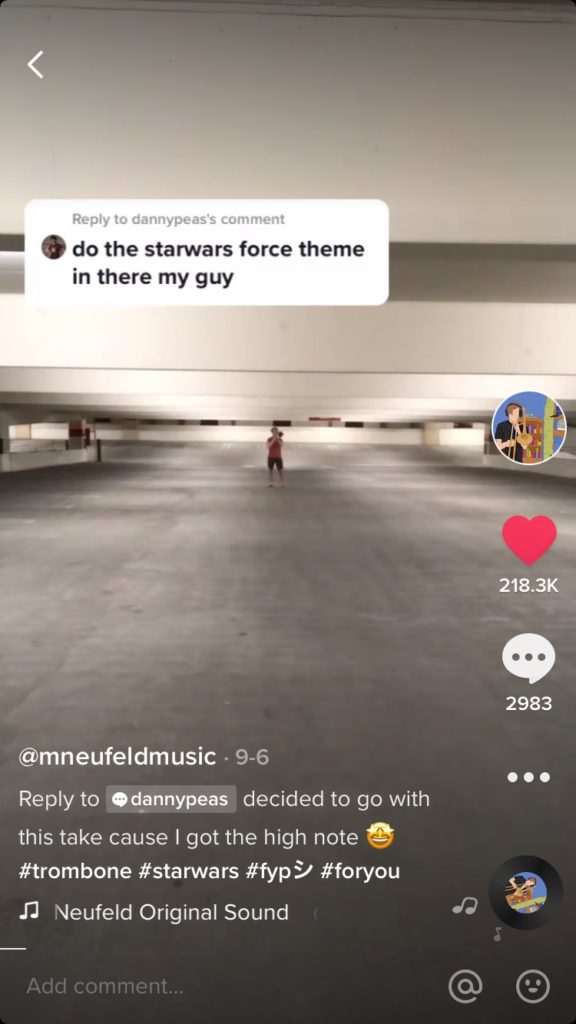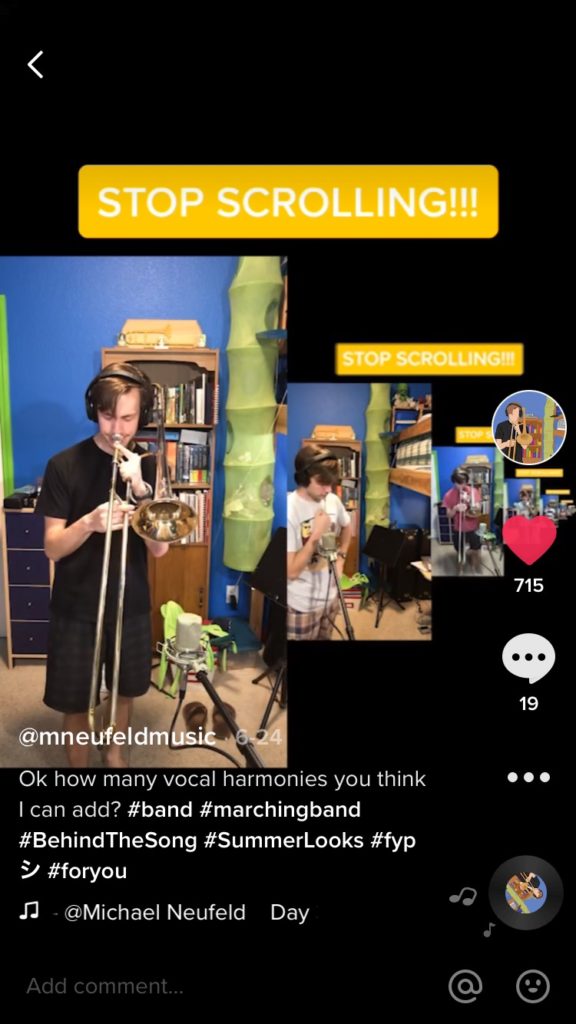By Michael Neufeld
Edited by Natalie Grace Sipula
[3½ minute read]
A little while back, I went viral on TikTok. At the time of writing this (October 2020), I have thirty-one thousand followers and over half a million likes collectively on my posts. While this isn’t necessarily equivalent to the amount of recognition creators, influencers, and the like have gotten on TikTok, but it’s certainly more recognition than I ever expected to see on the app.

Since quarantine started, I have been creating short, seven-second to one-minute long videos and posting them on TikTok. Most of them involve me playing trombone in some sort of creative way, whether that is playing along to a popular song, “duetting” someone else’s popular video, or just finding different shenanigans to engage in with my primary instrument. I found a variety of topics on the app, such as musical humor, anime discussion, or other interests of mine, and used those to creatively approach the way I made content. Soon, I found a community of people with similar interests. I connected with jazz musicians across America, who studied at reputable music schools that I knew of. They were all on TikTok for the same reason as me: we had nothing better to do in quarantine.
Over the first few months of COVID-19 lockdown, I had a few successful videos. At first, the bland videos would average around 500 views, while the more popular ones would score a few thousand. The response wasn’t massive, but it was entertaining for me to see which videos gained more of a response than others. I then started a consistent posting schedule which set me up to gain traction. I started one video off by saying “Alright here’s Day 1 of me Rick Rolling your feed until I go viral,” and proceeded to play Rick Astley’s “Never Gonna Give You Up.” For those of you unfamiliar with “Rick Rolling,” it is a prank that was popular around ten years ago, where one person would send a YouTube link to someone else, saying it was a link to something interesting. For example, one might have sent the link over a text accompanied by an explanation, “Hey, check out this video I worked hard on making!” The twist comes when the recipient opens the link and is sent to the music video for Rick Astley’s hit song “Never Gonna Give You Up”. After I played day one, I played a harmony to the first track and synced it up, so it sounded like I was playing a duet with myself. The audio at the beginning sounded, “Alright here’s Day 2 of me Rick Rolling your feed until I go viral.” This harmonization process went on for a little over a month, and each video netted me more and more views. I broke 500 followers, which at the time felt like a big achievement.

I kept making videos and nothing of note happened for a couple months, aside from a couple hits that broke thirty thousand views. Then I got an idea: “I need to practice, but I don’t have a practice room available because of COVID restrictions. Because I make too much noise in my apartment, I need to go to a parking structure to get some privacy and not disturb anyone. Maybe I’ll film myself in that resonant, echoey space and see what happens on TikTok.” Within the first five videos of me playing in a high-reverb parking garage, I jumped fifteen thousand followers over the course of two days. The culprit was a video of me playing the force theme from Star Wars (or “Binary Sunset” by it’s official name). That video currently is close to hitting one million views, with almost a quarter million likes.
Continue reading How I went VIRAL on TikTok



